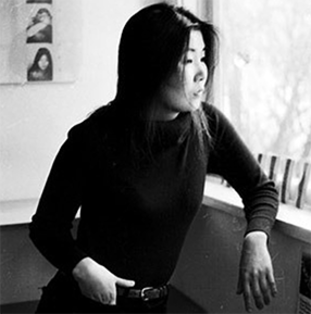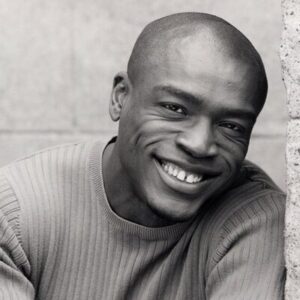
Making the List
It was a difficult task to whittle down a list of my favorite Cal writers. Whether it be current staff, alumni, or visiting professors, the genius that emerges from Berkeley is widely known and celebrated. I transferred here at the beginning of the fall 2021 semester, and immediately discovered a variety of writers in the community that have truly broadened my literary universe. I’m excited to share the breadth of highly influential figures I’ve found in the Cal community, and I really hope you leave this article feeling inspired and eager to read something new!
THERESA HAK KYUNG CHA

Posthumously achieving avant-garde iconography, particularly in the field of literature, Cha graduated from Cal with a Comparative Literature degree in 1973, and an Art degree in 1975. She went on to finish her masters at Berkeley, and gained an impressive reputation for her unique blend of language and syntax manipulation in literature and poetry; and her experimental approach to filmmaking and art. Perhaps her most notable literary work; Cha published a book of poetry in 1982, Dicteè, one week before her untimely death.
Dicteè is not an easy read. I learned about Cha’s work this semester in Joshua Gang’s wonderful seminar, English 100: The Seminar on Criticism. When I was in junior college down in Southern California, The Introduction to Theory and Criticism (taken during a winter inter-session from 7-10 PM most weeknights) was my favorite class by far. I was constantly amazed by how quickly my literary perspective could shift, and it was the first place I learned about Marxist theory (so you know it had to be good!) When reading Dicteè, I am reminded of that same doe-eyed feeling, where I’m simply blown away by the capabilities of writers and artists.
Dicteè engages with text and language in a way that perfectly captures her nature as an interdisciplinary artist. She writes about her family’s departure from Korea to China during Japanese rule from 1910-1945 and grapples with her own identity as a tri-lingual immigrant estranged from her native country. If you flip through the pages of Dicteè, the first thing you’ll notice is the unique organization of the text and the interesting combinations of writing in French, Korean, Japanese and English. The artistry of Dicteè is that it is exactly what we mean when we talk about “literary criticism”. There is so much to find in the text, and the million-piece puzzle that is Cha’s mind and work is one of my favorites to attempt piecing together.
REBECCA SOLNIT

I discovered Rebecca Solnit, a Cal alumni and visiting professor, by thrifting a copy of her book A Field Guide to Getting Lost. The way it turned up in my life feels oddly fitting given the title, and I wondered about it’s original owner and what it might have provided them before landing in my hands. Reading this book is a bit of a meta experience, as you truly get lost in it. Solnit utilizes her own personal history as a means of exploring what it is to be lost, to get lost, to feel lost. She has a strong sense of wonderment and humor in her writing, but the book isn’t just that. The essays are profound recollections that become even more compelling reads when recognizing their relationality to lost-ness and how it shapes our identity.
“To lose yourself: a voluptuous surrender, lost in your arms, lost to the world, utterly immersed in what is present so that its surroundings fade away.”
Page 6 of Essay 1: Open Door
Solnit has a variety of notable and inspiring works, especially for female writers. Her essay collection Men Explain Things to Me gained recognition for things like for Solnit’s robust diagnosis of misogyny as a major determining factor behind the rejection of same-sex marriage; as well as her interpretations of rape and rape culture both as symbolic and literal factor of female oppression and murder.
JOAN DIDION

Truthfully, what is there not to say about Joan Didion? She’s covered everything from the dark history of Cuban exile to Miami (also the title of the book), to the pains and realities of grief after the sudden loss of her husband, John Gregory Dunne, in 2003 (and later, her daughter Quintana Roo in 2005) in The Year of Magical Thinking.
After losing my dad quite suddenly, too, in the summer of 2018, one of the most recommended books to me was The Year of Magical Thinking. As any newly-bereaved person can tell you, it is not at all uncommon to find that people become terribly awkward around you, and sometimes have no idea how to bear the discomfort of witnessing your gruesome reality. I thought the book recommendations were merely a symptom of that discomfort. Until I started reading.
The Year of Magical Thinking could (and should) be read by anyone, regardless of whether or not they’ve experienced tragic loss. Didion has a way of talking about grief that is so sobering, you somehow just know it’s going to be okay. In grief world, sometimes “being okay” feels impossibly unattainable. The intimate, yet somehow practical, recollection of Didion’s loss helped me remember that somehow, this pain happens to almost all of us. Knowing that Didion made it through the loss of arguably the two closest members of her life and still managed to come out of it an even better writer is a true testament to her genius and resilience.
DARIECK SCOTT

Before I even begin, let me just get one thing out of the way: Darieck Scott is amazing. He has a J.D. from Yale, a Ph.D in Modern Thought and Literature from Stanford, and he’s smart. Really, really smart.
I met Darieck Scott at the beginning of my first semester as a Junior level transfer student this Fall. I remember thinking to myself, “The Novels of Toni Morrison? There’s a class for that?” I didn’t understand how my 4-year college experience could start off with a class that basically functioned as a really cool, super intellectual book club. I was excited to have something on my agenda outside of my major that would still stimulate and fulfill me. I knew a class on Toni Morrison would do just that. My schedule changed a lot in the first two weeks of the semester, like it does for many of us, but there was no way that Toni Morrison class was getting dropped. Uh-uh. She was here to stay. But it wasn’t entirely because of her. It was him.
Dr. Scott has this way of inducing deep respect and admiration for him within an hour and a half of listening to him talk. He doesn’t miss a beat. He makes beautiful words sound even more beautiful. He makes big words sound like regular words because he uses them just the right way. He listens and grows animated and excited by every question. He commands the entire room with his consummate, hypnotizing, absolutely sublime lectures.
When I got home after that first class, I decided to revisit his bio on the African American and African Diaspora Studies department website. And I noticed something I hadn’t noticed before: his stated interest in queer theory, LGBTQ studies and Gender and Sexuality in Fantasy. As a queer student, my gay heart melted immediately. How could I have missed this? I scrolled down to see the titles of his most notable published works, and my heart only grew fonder: Hex (2007), a “novel of love spells” that explores Black male sexuality and intergenerational spellcasting; and Dr. Scott’s first novel, Traitor to the Race (1995): a story about Kenneth and Evan, an interracial couple forced to revisit racial, political, and identity-oriented tensions after Kenneth’s cousin is brutally murdered. Dr. Scott is also the editor of Best Black Gay Erotica (2004), a collection touted for its excellent collection of “literary porn”, and for bringing Black homosexuality and eroticism to the fore.
The reality is that there are just too many good things to say about him. His intellect is spellbinding beyond belief, and if we’re talking about spellcasting, his lectures will leave you more enchanted by literature than ever before. Cal’s exceptional reputation is because of professors like him. He is sharp as a knife and his interests in magic, Blackness, sexuality, nuance, and queer theory shine through every lecture.
Tip of the Iceberg
This is, of course, a very brief, non-exhaustive list. I love these writers because they touch upon themes of queerness, womanhood, Blackness, grief, and more—all of which interest me, particularly along my academic trajectory as an English major and writer. It would take days to discuss every excellent writer that has emerged from this campus. One of the best things about all of these writers is that their literary interests may differ widely from one another, yet converge at the axis of their intellect and overall dedication to the production of ingenious work.
Mikena Richards is a junior-year transfer student majoring in English. Mikena is a creative writer whose primary focus is on personal and academic essays, creative nonfiction, autobiography, memoir, autofiction, (pop) culture, and criticism.